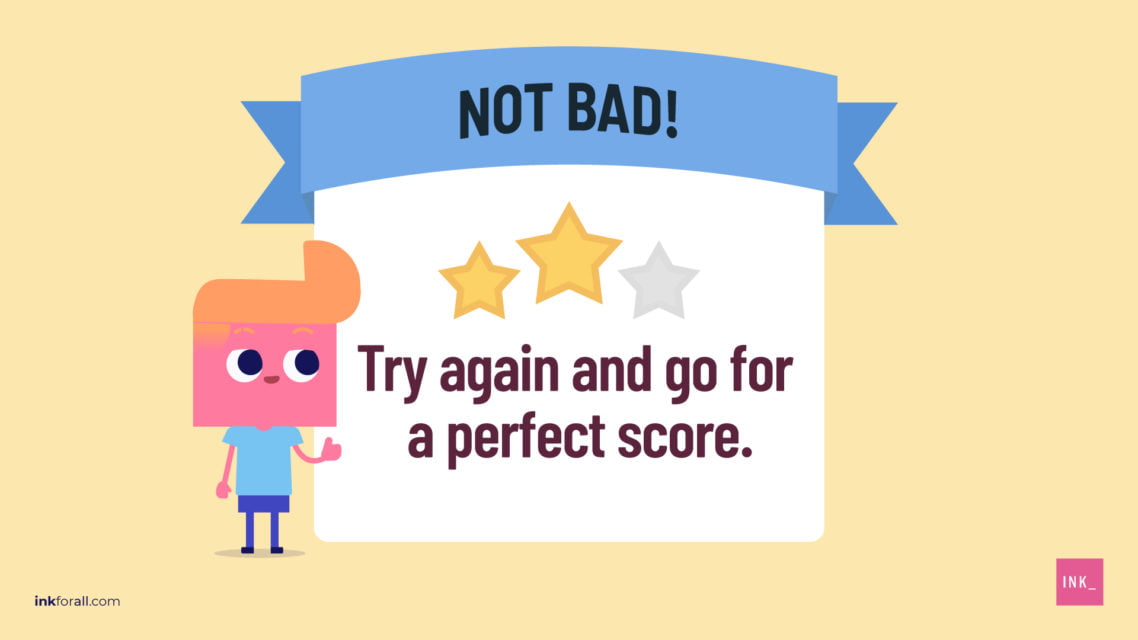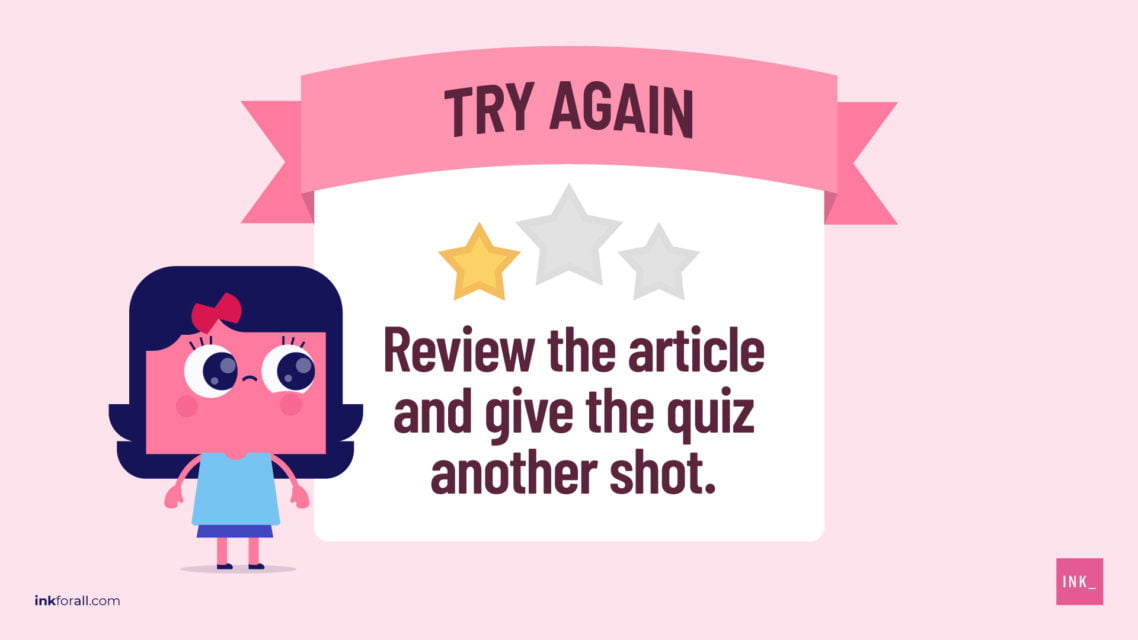Main Subordinate Clause Takeaways:
- A subordinate clause contains a noun and a verb.
- This type of clause is also called a dependent clause since it doesn’t make sense by itself.
- One easy trick for remembering the difference is to look at the prefix (“sub” means under or below).
- On the other hand, independent clauses do make sense by themselves. In fact, they work as stand-alone sentences (not “sub” or below any other clause).
- As a part of speech, subordinate clauses can be nouns, adverbs, and adjectives.
- Subordinating conjunctions connect subordinate clauses with main clauses. Examples include because, while, and although.
- You can start a sentence with a subordinating clause.
In this guide, we’ll dive into just one type of clause: the subordinate clause.
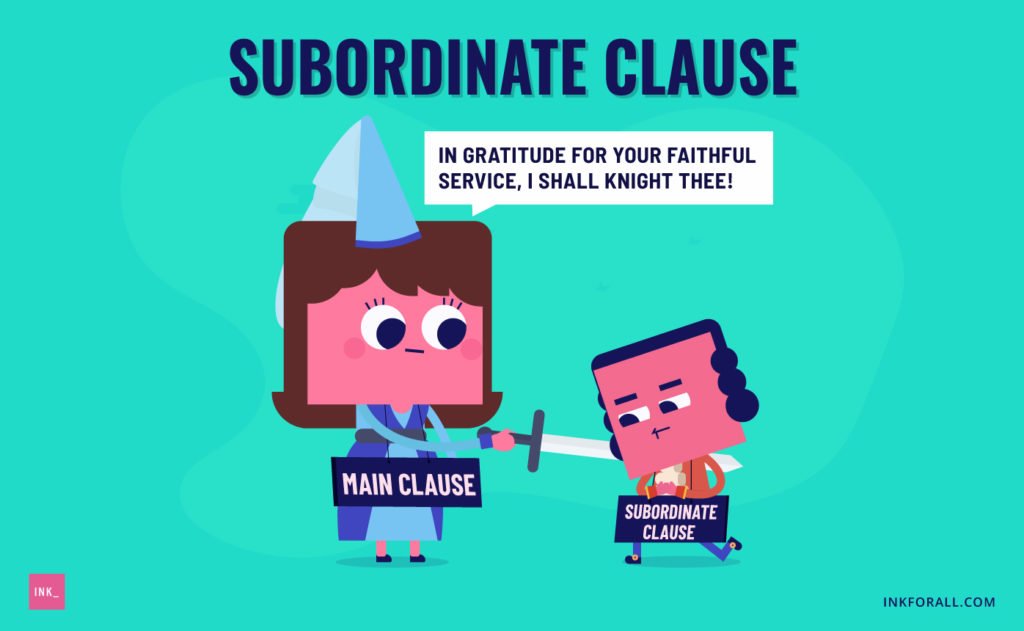

What is a Subordinate Clause?
A subordinate clause, also known as a dependent clause, relies on the main clause to have meaning. While it contains a subject and a verb, it can not stand alone as a complete sentence. Simply put, the main clause can make sense or be considered a complete sentence without another clause. Meanwhile, a subordinate clause will not make sense without the main clause.
What is an Example of a Subordinate Clause?
Here are more subordinate clause examples:
How Do You Identify a Main Clause and a Subordinate Clause in a Sentence?
For you to easily identify the main clause and the subordinate clause in a sentence, you first need to know what they are and their differences. Let’s start with the main clause.
The main clause or the independent clause is a group of words that expresses a complete thought. It has a subject and a predicate that together allow it to stand on its own, thus, the moniker independent clause.
On the other hand, a subordinate clause depends on another clause for it to mean something. It is normally joined to the main clause with asubordinating conjunction like while, but, or because. Since a subordinate clause needs another clause for it to make sense to readers, it is also referred to as a dependent clause.
Below are examples of sentences containing a main clause and a subordinate clause. The subordinate clauses will be highlighted in bold text.
- Independent (Main) Clauses: don’t need another clause to make sense and can stand alone as a complete sentence.
- Subordinate Clauses: need another clause to make sense and can’t stand alone as a complete sentence.
Can You Start a Sentence with a Subordinate Clause?
You can start a sentence with a subordinate clause (Since I was up early, I decided to go for a long walk). Or, it can go later in the sentence (I decided to go for a walk since I was up early). Other than the position of the clause, you’ll notice that the main difference between these two constructions is a comma; If the subordinate clause comes at the beginning of the sentence, you need to place a comma after it. However, if the subordinate clause comes later, you don’t need a comma with this clause.
Do You Put a Comma Before a Subordinate Clause?
You don’t need to put a comma before a subordinate clause (We love cooking with garlic even though it’s an intense flavor). However, when it comes at the beginning of sentence, you do need a comma after the subordinate clause (Even though it’s an intense flavor, we love cooking with garlic).
How Do You Identify a Subordinate Clause in a Sentence?
To identify a subordinate clause in a sentence, look for a clause that 1) starts with a subordinating conjunction (like because, while, and considering) or a relative pronoun (like who, whoever, whenever); 2) contains a noun and a verb; 3) doesn’t form a complete sentence. They can appear at the beginning or later on in a sentence, but subordinate clauses always have a few key elements in common.
Subordinate clauses are easy to spot. They begin with subordinating conjunctions or dependent pronouns (also called relative pronouns), and they contain both a subject and a verb. Instead of forming complete sentences by themselves, subordinate clausescontribute information to main (or independent) clauses.
The subordinating conjunction and dependent pronouns in all the following examples of subordinate clauses are bold to make them easier to spot.
First, you’ll see the subordinate clause example. Then, we’ll join this example with an independent clause to form a full sentence.
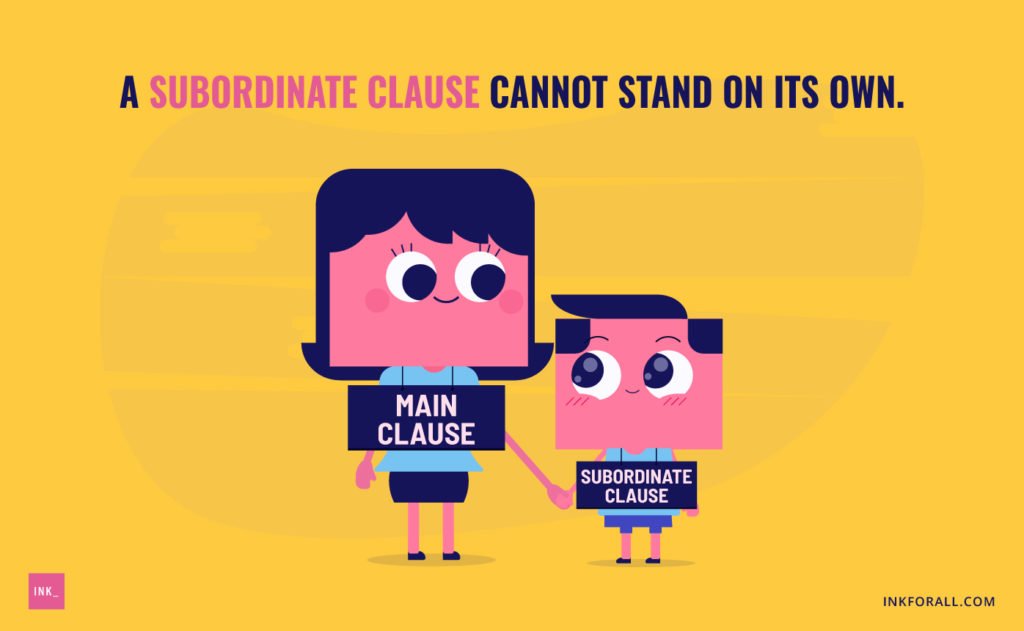

What are the 3 Subordinate Clauses?
The three types of subordinate clauses are: noun, adverb and adjective clauses. This basically means that we can treat a subordinate clause as an entire unit of a sentence rather than just a noun and verb pieced together. When we do, this entire unit can act as a noun, adverb, or even an adjective.
For instance, when a subordinate clause is the subject, direct object, prepositional object, or predicate nominative, its a noun clause. Similarly, when it modifies verbs, adverbs, and adjectives, it’s an adverb clause. Finally, when it modifies nouns and pronouns, it’s an adjective clause.
- Noun clauses can be subjects, direct objects, prepositional objects, and predicate nominatives (also known as subject complements).
- Adverb clauses (also called adverbial clauses) modify verbs, adverbs, and adjectives. They tell readers why, where, when, to what extent, or under what circumstances something has happened.
- Adjective clauses modify nouns and pronouns. They’re often introduced by relative pronouns (for example that, which, who, whom, whose, what).
1. Noun Clause Examples
2. Adverb Clause Examples
3. Adjective Clause Examples
How Do You Use Subordinate Clause in a Sentence?
Use a subordinate clause in a sentence to provide more information or details about the main clause. They don’t make sense by themselves. They need a buddy — a main clause — to become part of a sentence. Connect a subordinate clause with a main clause using either a subordinating conjunction (while, although, since) or a dependent pronoun, like this:
In each example, the subordinate clause tells us why the main clause happens, or to whom or what the main clause applies.
Does a Subordinate Clause Need a Verb?
Subordinate clauses need a noun and a verb. What’s more, they also need an independent, or main, clause to make sense. This means that even though a subordinate clause contains a noun and a verb, it can’t make a complete sentence without a main clause.
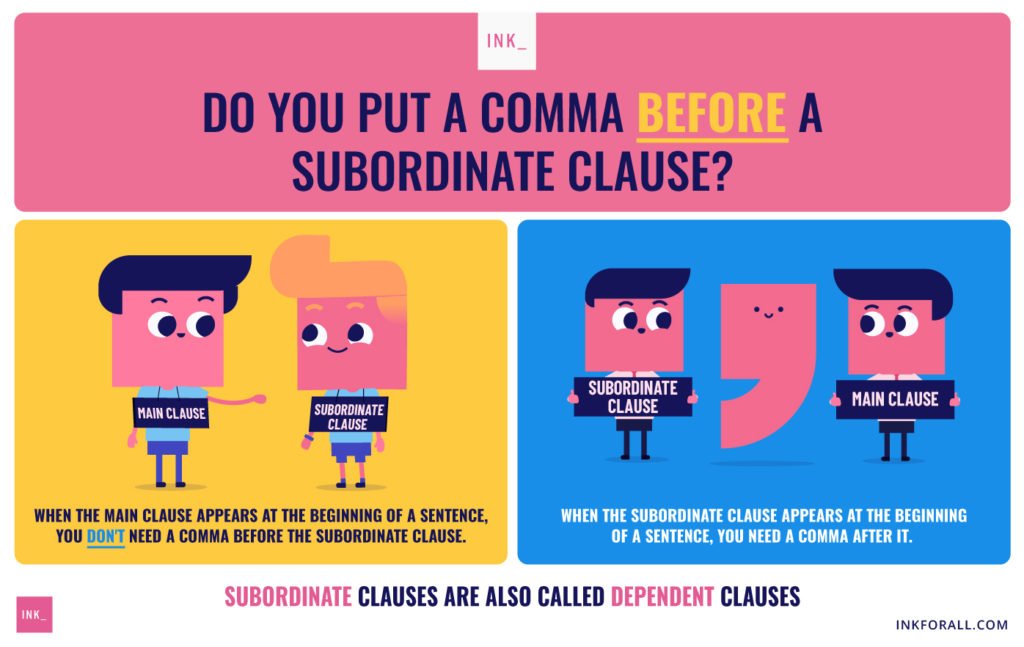

What is a Subordination Clause?
A subordination clause is not the same thing as a subordinate clause. One one hand, a subordination clause is a contractual provision that gives one claim on a debt precedence over other claims that come later. This type of legal clause usually appears in mortgage refinancing agreements. On the other hand, a subordinate clause is a clause comprised of a noun and a verb. Unlike an independent clause, subordinate clauses cannot stand alone as a sentence.
While there is some conceptual overlap, there is a clear difference between the meanings and the usages of these words. For example, associate a subordination clause with other debts being subordinate to the main one.
Similarly, associate subordinate clause with a clause being subordinate to the main one.
There may be four different types of sentences: simple, compound, complex and compound-complex, but they all have one thing in common; they’re all made of clauses.
Some sentences contain just one independent clause, while others feature both independent and dependent clauses.
Test Your Mastery of Subordinate Clause
Subordinate Clause Question #1
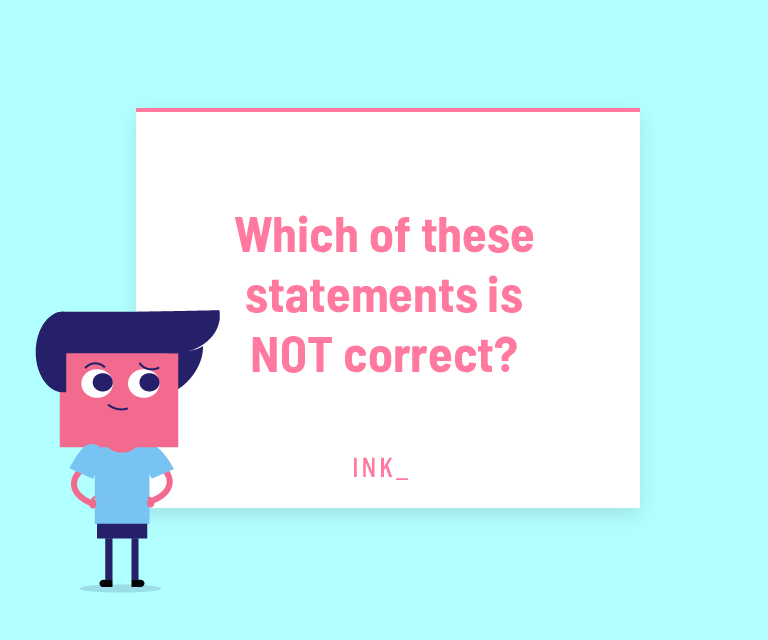

The answer is C. Although subordinate clauses contain both a subject and a verb, they don't work as complete sentences.
Subordinate Clause Question #2
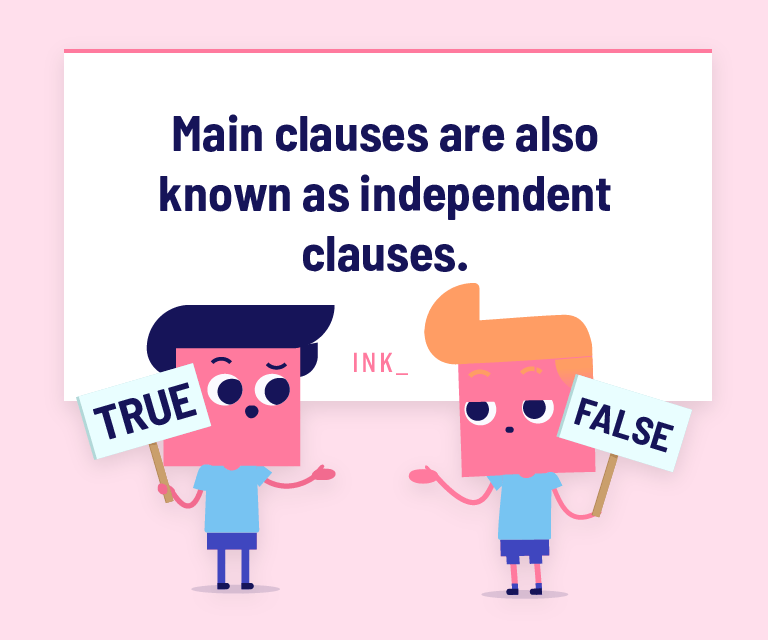

The answer is TRUE. Main clauses work as complete sentences.
Subordinate Clause Question #3
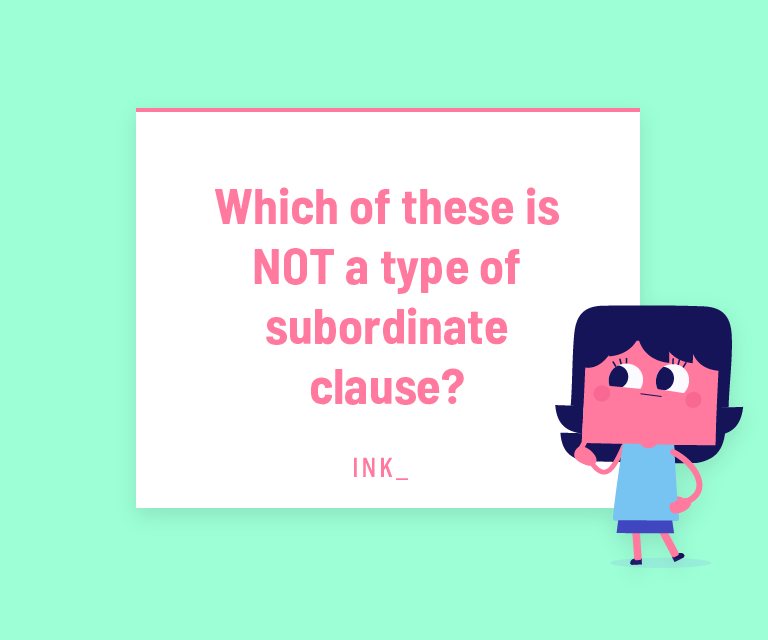

The answer is B. Subordinate clauses can act as nouns, adverbs, and adjectives.
Subordinate Clause Question #4
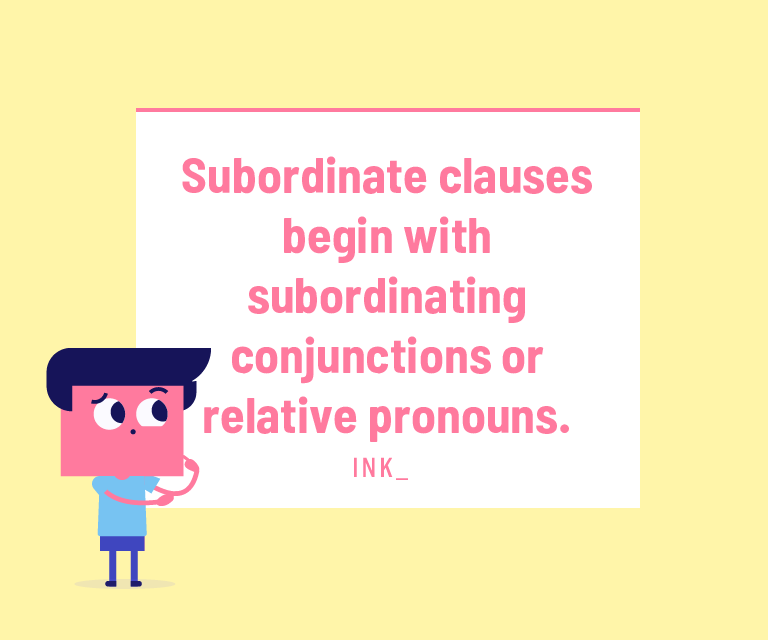

The answer is TRUE. You can identify subordinate clauses by spotting the subordinating conjunctions or relative pronouns.
Subordinate Clause Question #5
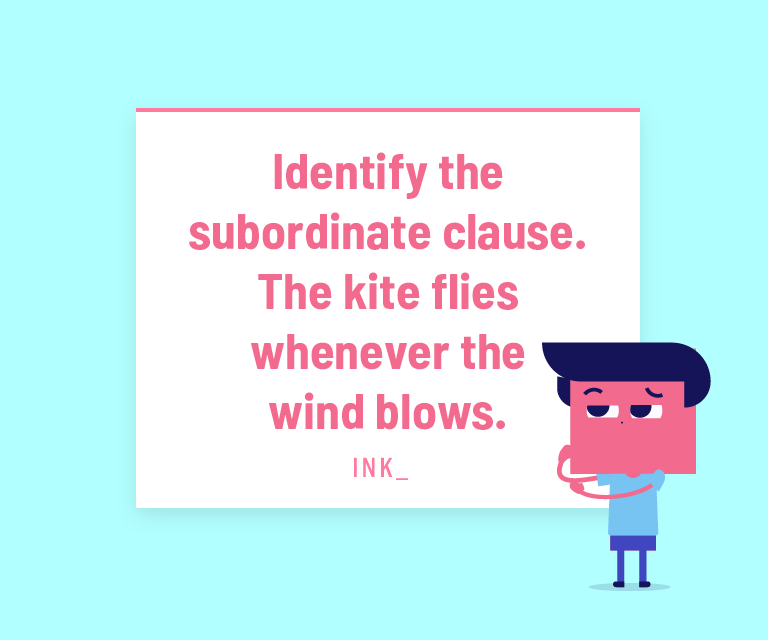

The answer is B. You can identify subordinate clauses by spotting the subordinating conjunctions or relative pronouns.
Subordinate Clause Question #6
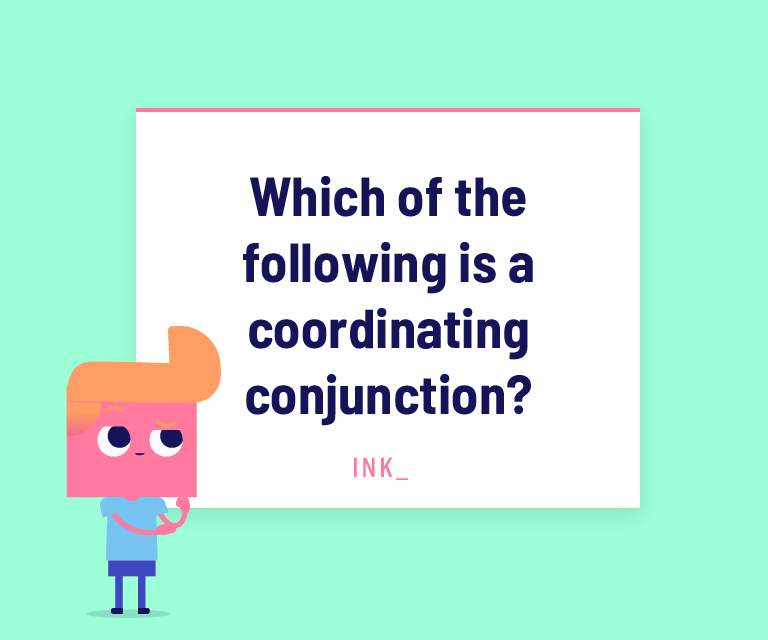

The answer is D. All of these are coordinating conjunctions.


